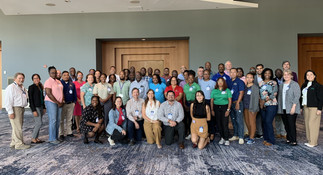Strengthening Swine Health Security: A Recap of the African Swine Fever Exercise in Puerto Rico
- garyaflory
- Aug 11, 2024
- 2 min read
The growing threat of African Swine Fever (ASF) has made it imperative for swine industry stakeholders worldwide to enhance their preparedness and response strategies. I recently participated in an intensive ASF planning exercise in Puerto Rico, hosted by the Inter-American Institute for Cooperation on Agriculture (IICA) and the United States Department of Agriculture (USDA). The event was a collaborative effort, drawing participants from 20 Caribbean nations, including Anguilla, Antigua and Barbuda, the Bahamas, Barbados, Belize, and more. It was an incredible week of learning, collaboration, and networking with dedicated professionals from across the region.
The exercise was not just another drill; it was a comprehensive review and revision of existing foreign animal disease (FAD) plans, with a sharp focus on ASF. The primary objective was to identify gaps and areas for improvement in these plans, ensuring they can effectively mitigate and respond to an ASF outbreak. The exercise was structured around 12 critical response activities, each addressing a specific aspect of ASF management—from surveillance and diagnostics to biosecurity, quarantine, and mass depopulation. These modules are designed to guide discussions and help participants develop robust response strategies tailored to their unique regional challenges.
One of the standout moments for me was the opportunity to serve as a trainer and facilitator, contributing to the region's preparedness efforts. Meeting and working alongside passionate professionals, including my longtime virtual colleague Dr. Jose H. Urdaz, DVM, MPVM, PhD, was a highlight. The chance to reconnect with old friends from the USDA, such as Barbara Porter-Spalding, Jack Shere, Fred Soltero, and Eric Coleman, made the experience even more rewarding.
The connections and knowledge shared during this exercise are invaluable as we collectively work to protect the swine populations in the Caribbean and beyond. Staying connected with my new Caribbean colleagues is essential, as our combined efforts are critical in the ongoing fight against ASF. Together, through collaboration and preparedness, we can safeguard the future of the swine industry from this devastating disease.














Comments